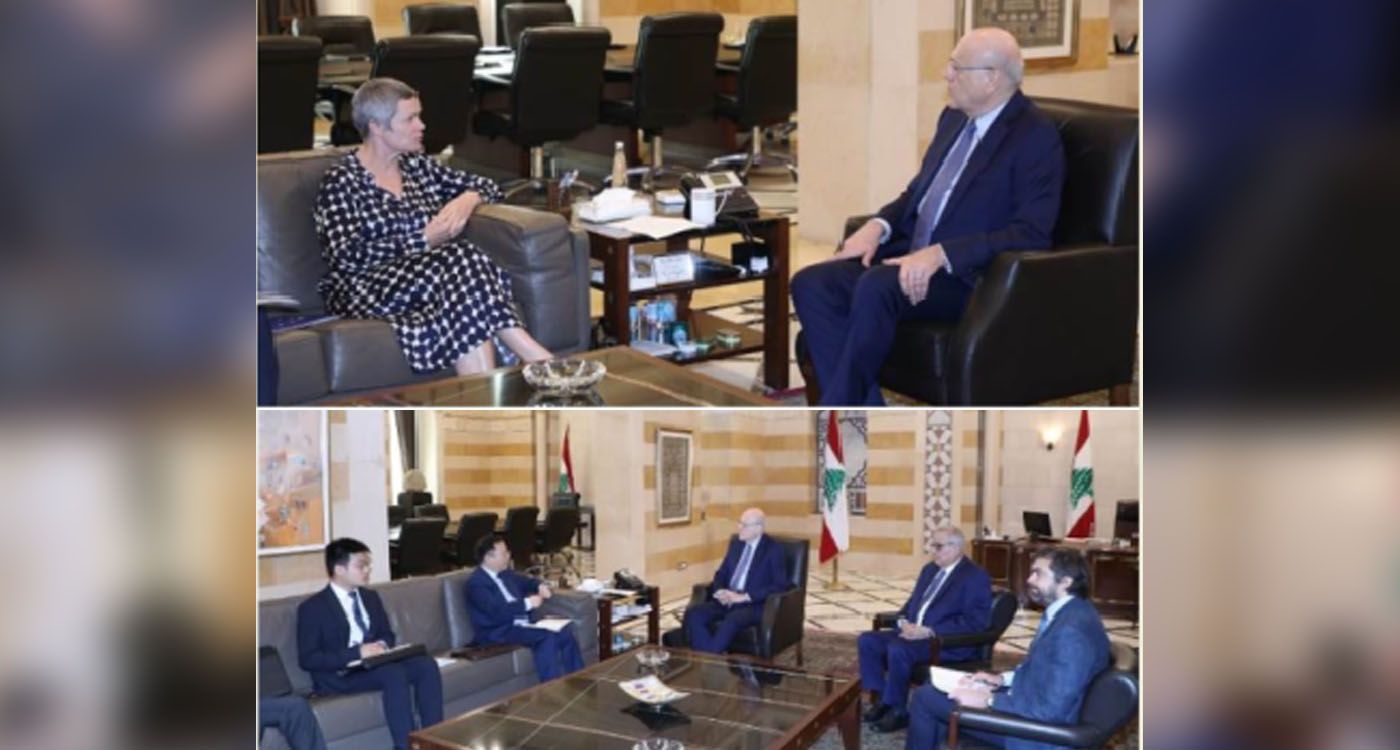
Caretaker Prime Minister Najib Mikati held a series of diplomatic meetings on Monday “to support the Lebanese position to put an end to the Israeli aggression.”
Mikati reiterated calls for putting pressure on Israel “to stop its aggression, opening the way for discussion on how to implement, to the letter, the provisions of resolution 1701 as approved, without additions or interpretations.”
He also recalled that the government had already approved, at a ministerial meeting, a decision to “reinforce the army's presence and recruit soldiers.” “At the next meeting, we will discuss certain executive measures to support the process of recruiting 1,500 soldiers for the army,” he added.
Also on Monday, Mikati delivered a letter to the ambassadors of the five permanent member states of the United Nations Security Council (UNSC), outlining the massive damage caused by Israeli strikes on Lebanon. He highlighted the attacks on the ancient cities of Baalbeck and Tyre, stressing “the displacement of entire villages and the threat to priceless cultural and heritage sites.”
He then called on the UNSC to “take swift and decisive action to protect these historic treasures, which are not only part of our national identity, but also represent global historical landmarks.” He also presented the Ministry of Health's report documenting the damage to the health sector.
Finally, the prime minister asked the Ministry of Foreign Affairs to circulate the letter to the non-permanent members of the UNSC.
Diplomatic meetings
Mikati first met the European Union Ambassador to Lebanon, Sandra de Waal, at the Serail, in the presence of Foreign Minister Abdallah Bou Habib.
In a press briefing following the meeting, the European diplomat declared that the purpose of the visit was to “express EU's support” in the face of Israeli aggression, and above all to call for “an immediate ceasefire.”
De Waal also stated, “We discussed EU support for Lebanon, including humanitarian and financial assistance, and emphasized the need for sectoral reforms, particularly in education and reconstruction.”
She noted that the reconstruction process after the war, “which will begin sooner or later, will require a well-functioning (viable) banking sector, including reforms aimed at combating corruption.”



Comments